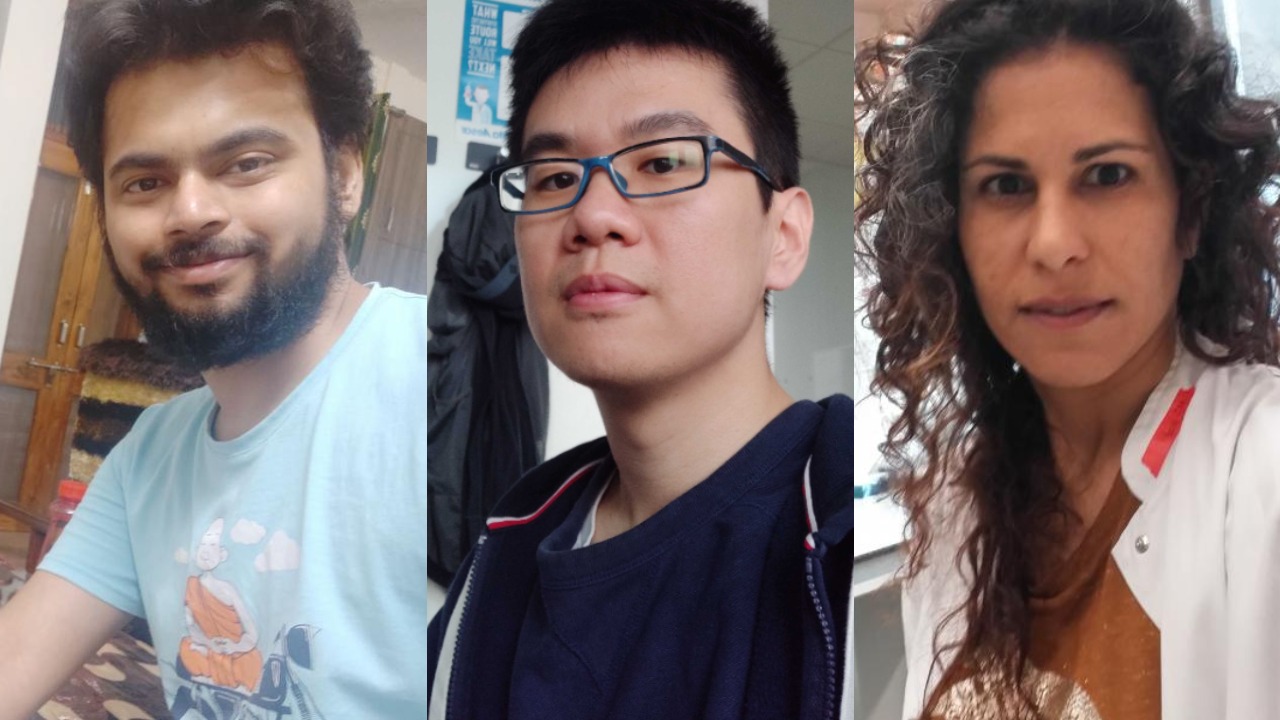Bowen Fan missed several weeks of lab work last year due to the lockdown. And that while the end of his PhD was in sight. How is he doing now?
From left to right: PhD student Vibhas Mishra, PhD student Bowen Fan and postdoc Michal Shemesh. (Photo: Edits of personal pictures)
PhD students and postdocs have had – just like other TU staff – a hard time during the corona crisis. Travel restrictions meant that some researchers were stuck abroad while others combined home schooling of their children with deep thinking. For better or worse. And then there were the countless research labs that were temporarily closed. Delta looks back on the past year with three PhD students and postdocs.
You look a lot more relaxed than the last time we spoke. How are you doing now?
“Good. My defence is almost done, so I am busy preparing now. I am more relaxed. Setting a date for my defence took a huge burden off my shoulders.”
Congratulations! Are you nervous?
“Quite a bit, ha ha. I’m mainly afraid that I won’t have a good answer to my promotors’ critical questions. Because of corona, the defence will be hybrid. I am in the auditorium, where part of the audience is. Another part will attend online. My defence is also being recorded, which has the advantage that my parents in China can watch it later. Or rather, could watch it. They don’t speak English and 45 minutes of watching a screen where people are talking in a foreign language is rather boring for them.”
What has been your biggest stumbling block over the past year?
“Writing my dissertation itself. Academic writing is so different from ‘normal’ writing. So I found that difficult. I looked at countless publications to find out how scientists build their sentences and what words they use. I then tried to find my own academic writing style. That was difficult and instructive at the same time. Fortunately, I had a lot of help from my supervisor.”
On a personal level, what did you learn from last year?
“Oh that’s a difficult question. If I have to say something it would be that I have become much better at planning. Before corona I didn’t plan much in advance, but during the corona crisis I had to. For example, you couldn’t just go to the lab, you had to reserve a time slot. That worked well, by the way. I could usually get a slot.”
Last time we spoke, you were worried about your job prospects. What about now?
“I would still love to do a postdoc, at another university or in another country. I still think the corona crisis will have an impact on the number of postdocs available, but I am less pessimistic than before. I will soon be applying in full and hopefully I will find a nice position.”
Your motherland China is now completely in post-lockdown mode. How do you think the Netherlands has handled the corona crisis?
“Honestly? Quite chaotic. With every new development, you saw that the Dutch Government didn’t really know what to do. I understand it though. The Netherlands is part of Europe and cannot always take decisions on its own. China can close its borders without consultation, European countries cannot. In that respect, China had it easier. I give the Dutch corona policy a mere six. It’s okay, but it could have been better.”
This interview is part of a series about doing research during the corona crisis:
Do you have a question or comment about this article?
a.m.debruijn@tudelft.nl


Comments are closed.